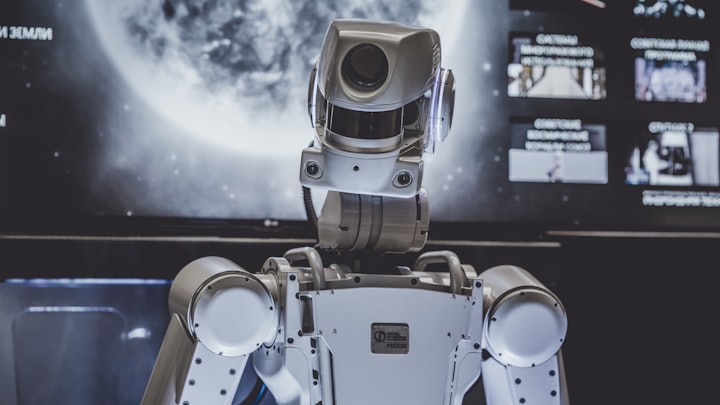Understanding Artificial Intelligence
The Concepts, Applications, and Future Implications of AI

Artificial Intelligence (AI) has become an integral part of our lives, permeating various aspects of society, from technology and healthcare to finance and entertainment. Its rapid advancement and potential have sparked both excitement and concern among people. In this article, we will delve into the fundamental concepts of AI, explore its applications across different industries, and discuss the potential future implications of this transformative technology.
Concepts of Artificial Intelligence
Artificial Intelligence refers to the simulation of human intelligence in machines that are programmed to think and learn like humans. It involves the development of algorithms and models that enable computers to perform tasks that typically require human intelligence. Let's examine some key concepts within the realm of AI:
Machine Learning: Machine Learning is a subset of AI that focuses on developing algorithms that allow computers to learn and improve from data without being explicitly programmed. It enables machines to recognize patterns, make predictions, and continuously refine their performance based on feedback.
Deep Learning: Deep Learning is a subfield of Machine Learning that is inspired by the structure and function of the human brain. It involves the use of artificial neural networks with multiple layers to process complex data and extract meaningful insights. Deep Learning has been instrumental in advancements such as image and speech recognition.
Natural Language Processing (NLP): NLP deals with the interaction between computers and human language. It enables machines to understand, interpret, and respond to human language in a meaningful way. NLP has led to significant advancements in virtual assistants, chatbots, and language translation systems.
Computer Vision: Computer Vision focuses on enabling machines to interpret and understand visual information from images or videos. It involves tasks such as object recognition, image classification, and image segmentation. Computer Vision has found applications in fields like autonomous vehicles, surveillance, and medical diagnostics.
Applications of Artificial Intelligence
The applications of Artificial Intelligence are vast and continue to expand across industries. Let's explore some prominent areas where AI is making a significant impact:
Healthcare: AI is revolutionizing healthcare by enabling more accurate diagnostics, personalized treatments, and efficient patient care. Machine Learning algorithms can analyze medical data to identify patterns and predict diseases. AI-powered robotic surgery systems and smart medical devices are also enhancing surgical precision and patient outcomes.
Finance: AI is transforming the finance industry through automated trading, fraud detection, risk assessment, and personalized financial recommendations. AI algorithms can analyze vast amounts of financial data and make real-time decisions. Chatbots and virtual assistants are also improving customer service in the banking and insurance sectors.
Transportation: The development of self-driving cars is one of the most notable applications of AI in transportation. AI algorithms analyze sensor data to navigate roads, detect obstacles, and make driving decisions. Additionally, AI is used in optimizing logistics and supply chain management, leading to more efficient operations.
Entertainment: AI has found its way into the entertainment industry through recommendation systems, content creation, and immersive experiences. Platforms like Netflix and Spotify use AI algorithms to personalize content recommendations based on user preferences. AI-generated art, music, and virtual reality experiences are also gaining popularity.
Education: AI is being integrated into educational systems to personalize learning experiences, provide intelligent tutoring, and automate administrative tasks. Adaptive learning platforms use AI algorithms to tailor educational content to individual students' needs and learning styles. AI-powered grading systems are also streamlining the assessment process.
Future Implications of Artificial Intelligence
While AI offers tremendous benefits and opportunities, it also raises important considerations for the future. Here are some potential implications of AI:
Job Displacement: AI automation may lead to job displacement in certain industries, as machines can perform tasks more efficiently and accurately than humans. However, new job opportunities may arise as AI creates demand for AI specialists, data scientists, and individuals skilled in collaborating with AI systems.
Ethical and Legal Challenges: AI presents ethical dilemmas regarding privacy, bias, accountability, and decision-making. Ensuring transparency, fairness, and accountability in AI systems will be crucial. Regulations and policies need to be developed to address the ethical and legal implications of AI.
Human-AI Collaboration: The future will likely involve increased collaboration between humans and AI systems. Humans will leverage AI capabilities to augment their own decision-making and problem-solving abilities. This partnership between humans and machines can lead to innovative solutions in various fields.
AI and Creativity: AI algorithms are already producing creative works such as art, music, and literature. This raises questions about the nature of creativity and the role of AI in artistic expression. Exploring the boundaries and possibilities of AI-generated creativity will be an intriguing area of research.
Artificial Intelligence (AI) holds immense potential for improving our lives, but it also comes with certain dangers and risks. While AI is still in its early stages, it's crucial to anticipate and address these risks to ensure the responsible development and deployment of AI systems. Here are a few stories highlighting some of the potential dangers of AI:
Autonomous Weapons: One of the most significant concerns is the development of autonomous weapons powered by AI. These weapons have the potential to make decisions and engage in combat without human intervention. In 2015, a group of prominent scientists and entrepreneurs, including Elon Musk and Stephen Hawking, signed an open letter warning about the risks of autonomous weapons and calling for a ban on their development and use.
Deepfake Technology: Deepfakes are AI-generated synthetic media, such as videos or images, that manipulate or superimpose someone's face onto another person's body. While this technology has entertaining and creative applications, it also poses risks. Deepfakes can be used to spread misinformation, create fake news, or defame individuals. There have been instances of deep fake videos being used to manipulate public opinion and damage reputations.
Biased Decision-Making: AI systems are trained on vast amounts of data, and if that data contains biases, the AI can inadvertently learn and perpetuate those biases. For example, in 2018, Amazon discontinued its AI recruiting tool because it was found to discriminate against women in the hiring process. The system had learned from historical data, which was biased toward male applicants, and consequently, it favored male candidates.
Privacy and Surveillance: AI-powered surveillance systems raise concerns about privacy and the potential abuse of power. Facial recognition technology, for instance, can track and identify individuals without their consent or knowledge. In China, there have been reports of the government using facial recognition to monitor citizens' activities and suppress dissent. The widespread deployment of such systems without proper safeguards raises significant ethical and privacy concerns.
Unemployment and Economic Disruption: The automation potential of AI and robotics has raised concerns about job displacement and economic disruption. As AI systems become more capable, they can replace human workers in various industries, leading to unemployment and social upheaval. For example, self-driving vehicles threaten the livelihoods of truck drivers, and automated customer service systems can replace human customer support representatives.
Conclusion
Artificial Intelligence is a transformative technology that has the potential to reshape various aspects of society. Understanding the concepts of AI, exploring its wide-ranging applications, and considering the future implications are crucial for individuals, businesses, and policymakers. As AI continues to evolve, it is essential to harness its power responsibly, addressing ethical considerations and ensuring that its benefits are accessible to all. With ongoing research and collaboration, we can navigate the future of AI and unlock its full potential for the betterment of humanity.





Comments
There are no comments for this story
Be the first to respond and start the conversation.